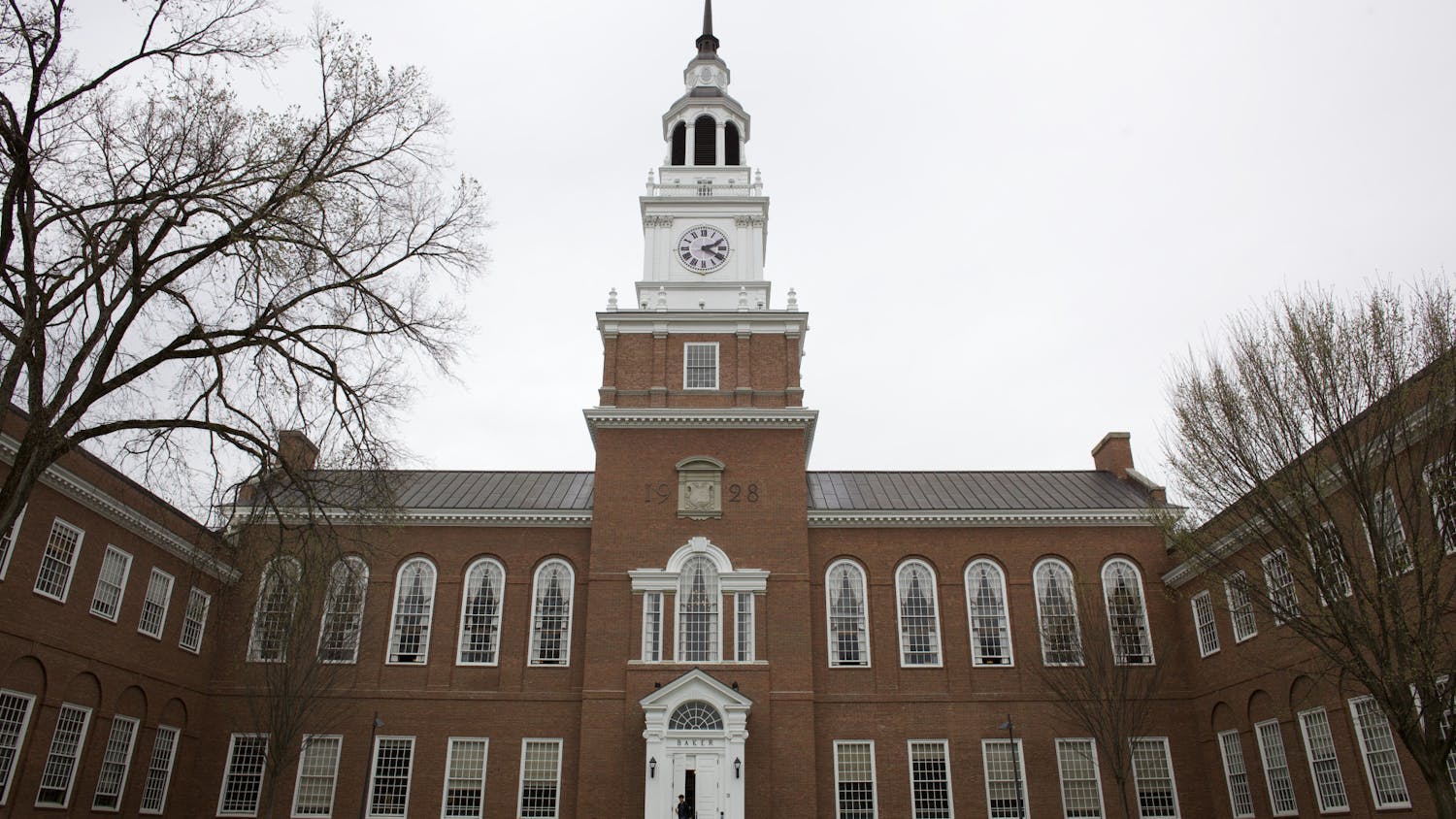Representatives from five campus groups and over 30 community members discussed methods to curb campus sexual assault at the second annual Symposium on Sexual Assault on Sunday. Speakers at the event, organized by the Student and Presidential Committee on Sexual Assault, recommended that the administration increase education about sexual assault, more effectively support victims and increase punishment for assault perpetrators.
SPCSA members began with a discussion on a fall survey that gauged how community members view sexual assault. The committee's assessment found that the majority of sexual violence at the College occurs in residence halls and Greek houses and that the victim often knows the perpetrator. Alcohol plays a significant role in most cases of sexual assault.
Amanda Childress, a Sexual Assault Awareness Program coordinator, said SAAP hopes to centralize sexual assault resources to improve student education. She noted that the Health Promotion department, which sponsors SAAP, plans to move closer to the center of campus to Robinson Hall from Dick's House later this term.
Existing resources, including the Dartmouth Bystander Initiative for students and first responder training for faculty and staff, aim to combat sexual assault prevalence and provide guidance to support victims.
"We are being very intentional with who we are targeting," she said. "This is not a program of exclusion. We are focusing on those people who haven't been involved before. We want preventing sexual assault to be a way of life at Dartmouth."
Outgoing Greek Leadership Council moderator Duncan Hall '13 discussed GLC's Sexual Misconduct Policy, which was unanimously approved by Greek leaders in February. GLC crafted the policy to respond to members' concerns that Greek organizations lacked uniform standards to handle sexual assault policy violations.
"People felt that members of the Greek system should be leaders and use their position to call for a positive form of social change," Hall said. "We wanted to empower members to embrace the issue of sexual assault on many levels."
The policy increases sexual assault education for affiliated students and modifies the adjudication process for those accused of sexual assault. Members of Greek organizations must attend two education sessions, one during pledge term and another during sophomore summer.
The Committee on Standards will continue to adjudicate sexual assault cases, though members of Greek organizations often elected to handle these cases internally in the past in addition to the COS hearings.
Members who are found guilty of sexual assault will face increased penalties, ranging from increased sanctions to expulsion from their chapter. Greek organizations that do not abide by the policy will lose GLC funding.
Robert Wetzel '76, a representative of Dartmouth Change, an organization of alumni, parents and students who work to decrease sexual assault at the College, said the administration needs to take more responsibility for preventing assault.
"We reject that this is a student issue," Wetzel said. "This is a community issue. The administration has said this is a problem. Our goal is to keep the pressure on."
Dartmouth Change suggests that the College develop a zero tolerance policy for sexual assault and make education mandatory, member Jim Reynolds '75 said. Under a zero-tolerance policy, students found guilty of sexual assault would be automatically expelled from the College.
"Research has found that punishment is the most effective," Reynolds said. "We support mandatory expulsions for students found guilty of sexual assault. How does it look to victims that Dartmouth won't support them in this way?"
Reynolds believes the administration needs to offer more support to sexual assault victims.
"If I were the president and I got a call that a student had been assaulted, I would immediately visit with the victim and let her know that the College is completely behind her," he said. "Parents entrusted this institution with the care of their children."
Dartmouth Change is currently raising money to create a legal defense fund for sexual assault victims. The legal defense fund would support students who choose to bring their cases to court.
Sexual assault victims typically take their cases to COS rather than report them to the Hanover police, SPCSA vice chair Anna Fagin '13 said. COS needs only a preponderance of evidence for a guilty sentence, while New Hampshire courts demand proof beyond a reasonable doubt.
Under the 2013 reauthorization of the Violence Against Women Act, all federally-funded universities must invoke the preponderance of evidence standard when examining sexual assault cases. The College has used this standard for decades and reaffirmed it in 2008.
Fagin said that many assault victims are unlikely to report their perpetrators because they fear exclusion from the community.
Even methods necessary to gather case evidence, such as using a rape kit, can be traumatic for victims. Dick's House does not have a trained sexual assault nurse examiner, so victims must go to Dartmouth-Hitchcock Medical Center for testing.
"Most survivors just want to move on with their lives," Childress said. "They are afraid of being ostracized. We must create a campus that is safe for survivors."
Other suggestions discussed at the symposium included making information about sexual assault recovery more public and prohibiting perpetrators from being on campus while their victims are.
Speakers spoke about ways the College could protect first year students, who tend to be at most risk for sexual assault.
The College could introduce a mandatory class about sex and sexuality, focus more on sexual assault during orientation week and introduce freshmen to Greek life in a more controlled way.
SPCSA member Sophia Pedlow '15 said that fewer people attended the symposium as the committee may have hoped, she was pleased with the overall outcome.
"It was a really big weekend this weekend," Pedlow said. "We understand that a lot of people were really busy."
Aurora Matzkin, leader of the College's Health Improvement Project, team said work remains to improve campus climate.
"There is evidence of progress, but the work is not finished," she said. "We have an opportunity to increase moments of safety and decrease moments of harm."



